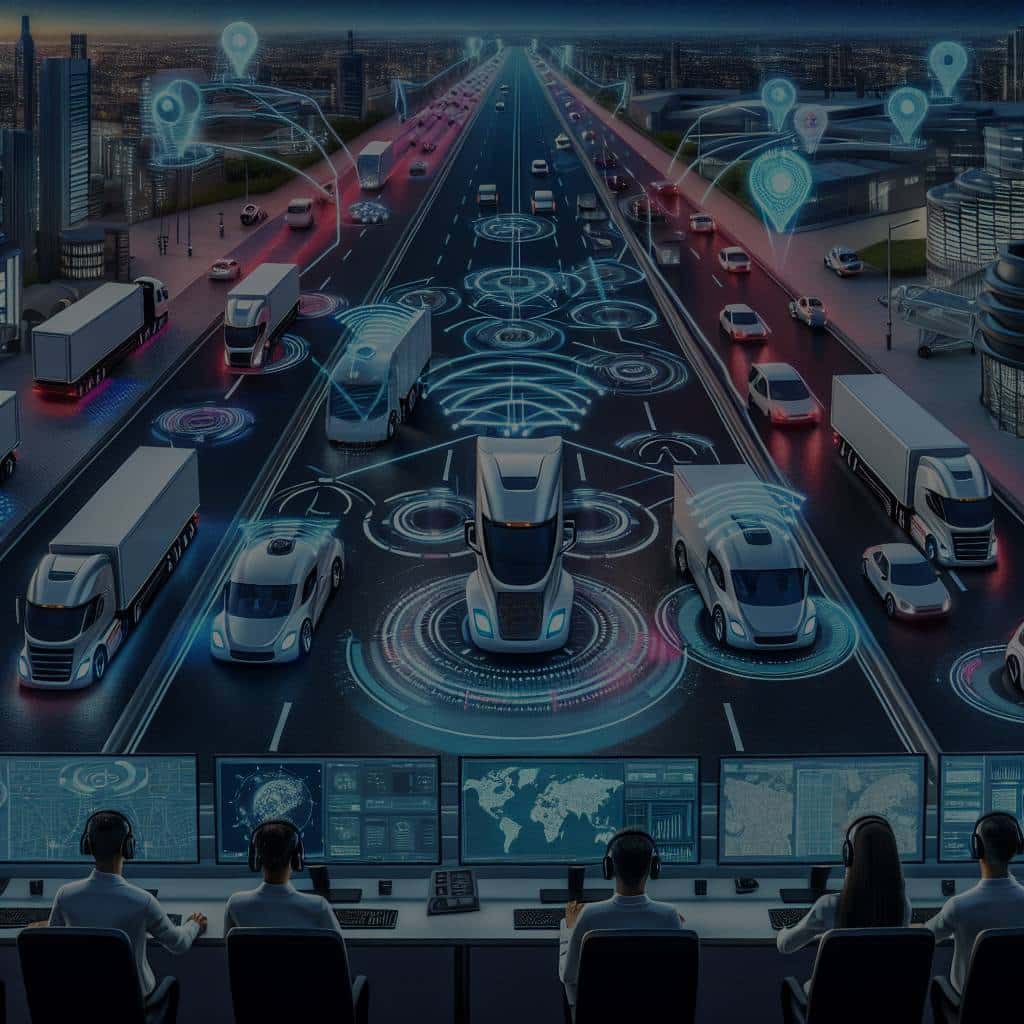The world as we know it is on the brink of a transportation revolution. The dramatic shift from traditional vehicles to autonomous vehicles (AVs), also known as self-driving cars, is no longer science fiction but reality. This article is designed to provide a comprehensive look at the future of autonomous vehicle technology, particularly for UK Logistics companies. We will dive into the potential impact, regulatory challenges, and technological development that are poised to reshape the logistic industry.
The Changing Landscape of Transport
The technological advancements in autonomous driving are significantly reshaping the public transport sector. This change is primarily fuelled by the need for improved safety on the roads and efficient traffic management. The development of autonomous vehicles has been a key focus for many industry players in recent years. The goal is to revolutionize the way goods are moved, reducing human error, and consequently, enhancing road safety.
In the same genre : What Are the Ethical Implications of AI Surveillance in UK Work Environments?
Autonomous vehicles use a combination of sensors, cameras, radars, and artificial intelligence (AI) to navigate the roads without human intervention. They can perceive their surroundings, make decisions, and execute actions such as accelerating, braking, or steering, which are fundamental to driving.
In the logistics industry, the use of AVs can significantly optimise operations, reducing costs and increasing efficiency. Autonomous vehicle technology can streamline the supply chain, as vehicles will be able to operate 24/7, improving the delivery speed and reliability.
Also read : How UK Grocery Retailers Can Implement AI for Efficient Stock Management?
Autonomous Vehicle Technology: A Look at the Future
The future of AVs is full of potential. Presently, most autonomous vehicles are operating at level 3 or below on the Society of Automotive Engineers’ autonomy scale. This means they still require human intervention in certain driving scenarios. However, tech companies and automakers are striving to achieve level 5, which implies complete autonomy in all situations, regardless of the driving environment or conditions.
Once this level of autonomy is achieved, it will be a significant game-changer for the transport industry. Self-driving trucks, for example, could revolutionise the way goods are transported. They can travel for extended periods without breaks, reducing delivery times and increasing productivity.
Logistics companies will benefit from reduced operating costs as the need for drivers decreases and fuel efficiency improves due to optimised driving behaviours. Moreover, the technology could potentially free up traffic congestion as AVs are expected to have smoother and more predictable driving patterns.
Regulatory Challenges and Public Acceptance
Despite the immense potential of autonomous vehicle technology, it is not without challenges. Regulatory uncertainties are one of the major hurdles to the deployment of AVs. Currently, the law in many countries, including the UK, does not permit fully autonomous vehicles on public roads.
The UK government, however, is actively working to amend these laws and has expressed a commitment to becoming a global leader in self-driving technology. In March 2021, the government announced that it was looking to allow self-driving cars on UK roads by the end of the year, starting with motorway driving.
Public acceptance is another significant hurdle. Many people still harbour concerns about the safety of autonomous vehicles. The industry will need to work tirelessly to win over the public’s trust, demonstrating through extensive testing and trials that AVs can operate safely and efficiently.
Technological Development and Industry Collaboration
The development of autonomous vehicle technologies has been turbocharged in recent years due to the integration of AI and machine learning. These technologies enable the vehicle to make informed decisions based on the data collected from their surroundings. However, for these vehicles to operate effectively, they must be able to communicate with each other and with the infrastructure around them.
This is where the concept of Vehicle-to-Everything (V2X) comes into play. V2X communication allows vehicles to interact with any entity that may affect the vehicle, including other vehicles, infrastructure, and pedestrians. This technology is crucial in ensuring the smooth and safe operation of AVs.
Furthermore, the autonomous vehicle industry is characterised by collaborations between tech companies and automakers. These partnerships are crucial in accelerating the development and deployment of self-driving technologies. For instance, in the UK, autonomous vehicle projects like Project Endeavour are bringing together tech companies, automakers, and logistic companies to test and develop autonomous vehicle technologies.
Harnessing the Potential of Autonomous Vehicles
Although the widespread adoption of autonomous vehicles may still be some years away, their potential benefits are undeniable. For the logistics industry, they offer a unique opportunity to streamline operations, reduce costs and increase efficiency.
To harness the potential of autonomous vehicles, it will be crucial for logistics companies to stay abreast of technological advancements and regulatory changes. They must be ready to invest in this technology and adapt their business models to accommodate these revolutionary changes. The autonomous vehicle revolution is just around the corner, and companies that are prepared will be well poised to lead the industry into this brave new world.
Pathway to Successful Implementation
A clear trajectory towards the successful implementation of autonomous vehicles involves numerous aspects. One central factor is the active participation of the city council and local government. Coventry City, for example, has been at the forefront of driving transport innovation in the UK, welcoming trials of automated vehicles.
In terms of infrastructure, a significant investment is required to establish an ecosystem that can support the operation of autonomous vehicles. This includes the development of connected roads and smarter traffic systems. Implementing such changes will ensure the smooth integration of autonomous driving technology into existing infrastructures, thereby promoting road safety.
In addition, the training of existing and potential workforce in the logistics industry is essential to manage and maintain these automated vehicles. This will involve understanding the complex systems that power autonomous vehicles, including artificial intelligence, machine learning, and sensor technology.
Another critical factor is the development of robust cybersecurity measures. With AVs relying heavily on connected technologies, they are potentially vulnerable to cyber attacks. As such, robust security protocols must be implemented to protect data and ensure the safety of the vehicles and their cargoes.
The environmental impact of autonomous vehicles also cannot be overlooked. While many AVs are expected to be electric vehicles, the industry must ensure that the technology is developed and implemented in a way that is sustainable and minimises its impact on the environment.
Conclusion: Embracing the Autonomous Vehicles Revolution
The future of autonomous vehicles in the UK logistics industry is bright, presenting a myriad of opportunities to revolutionise the way goods are transported. From increased efficiency in the supply chain to improved road safety, the potential benefits are immense.
However, for these benefits to be realised, significant hurdles must be overcome. Regulatory changes, public acceptance, technological advancements, and industry collaborations are all critical pieces of the puzzle. It is essential for logistics companies to be proactive, staying up-to-date with the latest developments and being ready to adapt their practices to incorporate this innovative technology.
City councils and local governments also have pivotal roles to play, particularly in terms of supporting trials of autonomous vehicles and investing in the necessary infrastructure changes.
At the heart of this revolution is artificial intelligence, powering these vehicles to make informed decisions and operate without human intervention. As such, continued investment in AI and related technologies is vital to driving this technology forward.
In summary, the autonomous vehicle revolution is not just on the horizon – it is happening now. With the right approach and collective effort, the UK logistics industry can successfully navigate this transformative period and emerge stronger, more efficient, and more sustainable. The journey towards fully autonomous driving vehicles is an exciting one, and the logistics industry should brace itself for the significant changes ahead.






